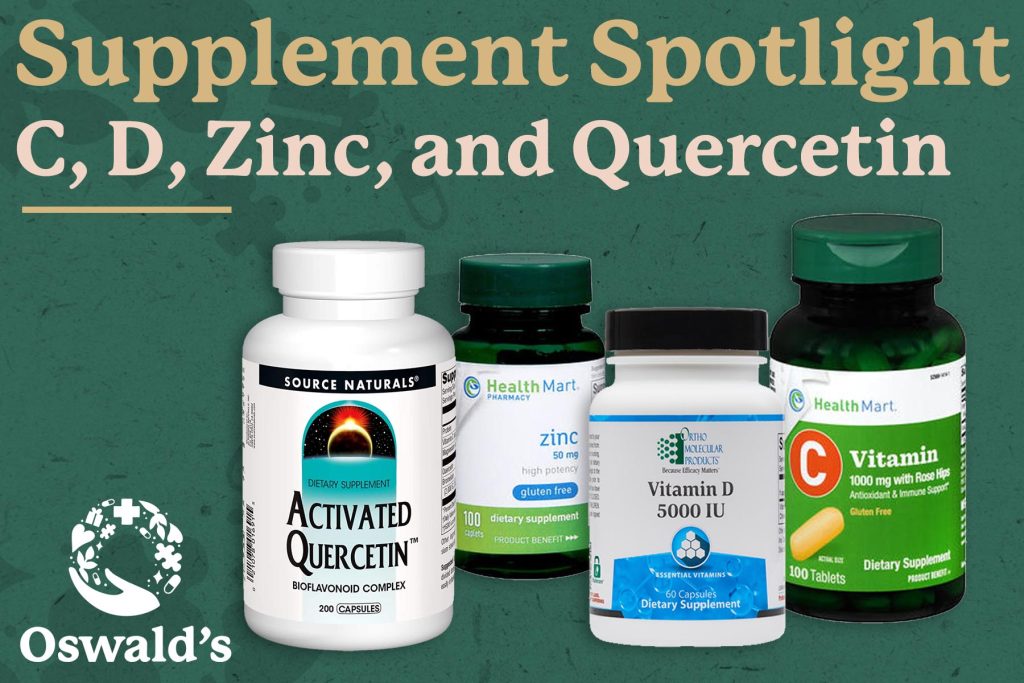Supplements have been available in pharmacies worldwide to prevent deficiencies, aid in sleep, provide energy, and various other health benefits. The buzz around supplements having the potential to prevent COVID-19 infection has been prevalent these last couple of months due to new variants and increased cases. These supplements include but are not limited to vitamin C, vitamin D, zinc, and quercetin.
The governing public health bodies we follow state there is not sufficient evidence to support a recommendation for the use of these supplements for the prevention or treatment of COVID-19. Although there is a lack of data in regards to COVID-19, these supplements each provide immune system support and can potentially prevent future illness.
Vitamin C & Vitamin D
Vitamin C, also called ascorbic acid, is thought to have benefits for oxidative stress and severe inflammation. It is an antioxidant (prevents cell damage), a free radical scavenger, and also contains anti-inflammatory properties. Research shows 200 mg/day helps reduce the duration of the common cold and severity levels. A deficiency can impair immune function and increase the susceptibility to infections.
Vitamin D supplements are available in 2 forms: vitamin D2 (ergocalciferol) and vitamin D3 (cholecalciferol). D2 is found in plants and yeast products whereas D3 is found in animal sources. Vitamin D is well known for calcium absorption and bone health, but it also plays a role in the immune system. With efficient levels, vitamin D can decrease viral replication rates, suppress inflammation, and increase T-cell levels which are essential in immune system function. Some evidence shows vitamin D can also help prevent respiratory tract infections.
Zinc & Quercetin
Zinc and quercetin go hand-in-hand. They both have anti-viral, anti-inflammatory, and antioxidant properties. The benefit of taking zinc with quercetin is that the quercetin will push the zinc into the center of the cell where it is the most effective. Increased zinc concentrations in the body impair replication in a number of RNA viruses. Hence its use for the common cold as well as its potential to prevent COVID-19. Long-term use of zinc can cause further health problems, so its use should be limited.
If you are unsure about which supplements would benefit you, talk to your primary healthcare provider. Be sure to disclose medical conditions as well as current medication regimens in order to make the most appropriate recommendation for you.

